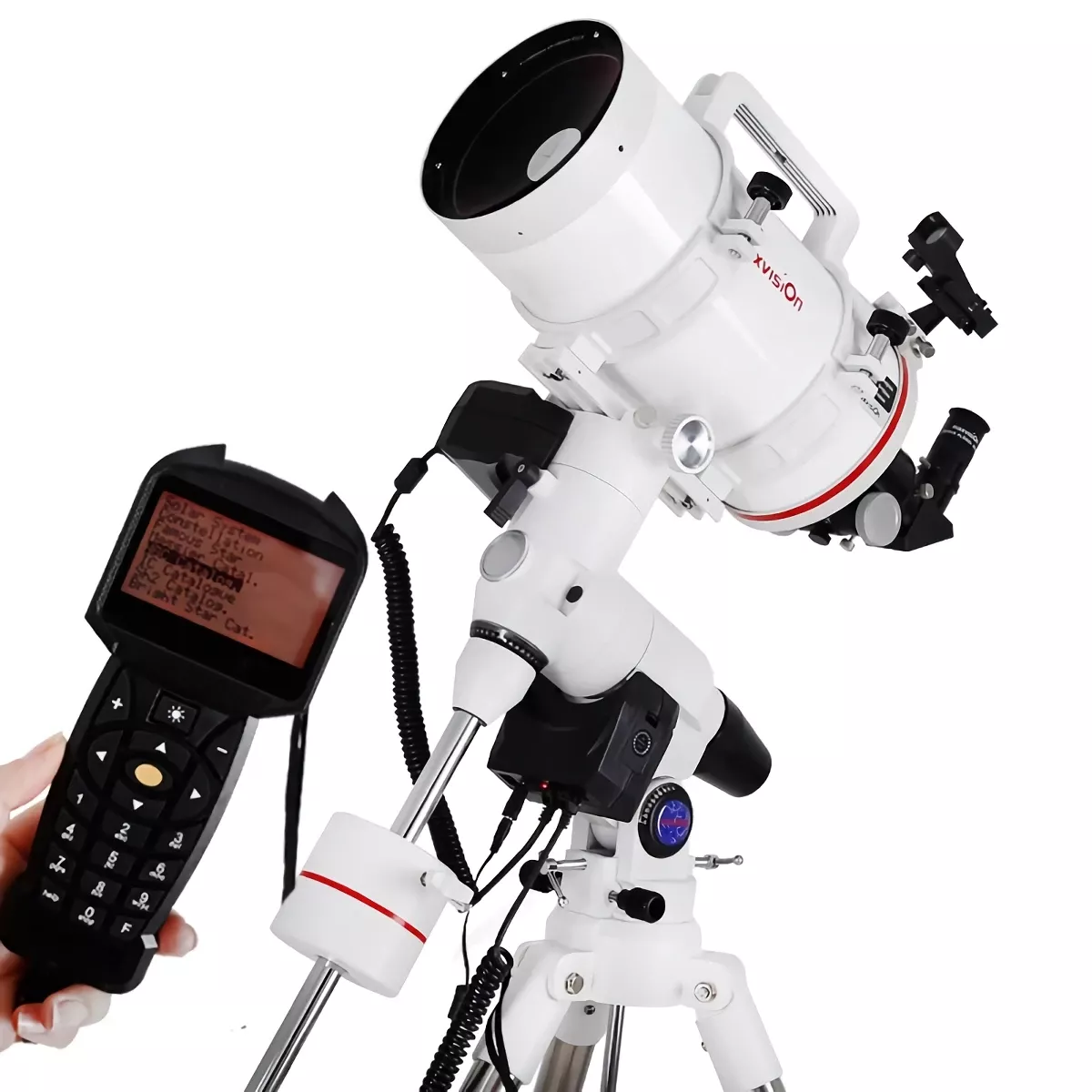Which is the Best Telescope to Observe Planets? A Complete Buying Guide

If you’ve ever wondered about the best telescope to observe planets, you’re not alone. Whether you’re just starting your astronomy journey or looking to upgrade your current setup, the right telescope can completely transform your viewing experience. In this guide, we’ll explore what makes a telescope ideal for observing planets, highlight some top recommendations, and help you choose the best telescope for your needs, all while meeting your buying intent. Let’s dive in!
Finding the best telescope to observe planets can greatly enhance your astronomical experience. With the right setup, you’ll be able to see stunning details of celestial bodies.
Understanding the Best Telescope to Observe Planets
Why Choosing the Best Telescope to Observe Planets Matters
In your search for the best telescope to observe planets, consider the types of objects you want to see and how frequently you plan to use your telescope.
The best telescope to observe planets can also vary based on your budget and experience level, making it important to review your options carefully.
Ultimately, the best telescope to observe planets is one that fits your specific viewing needs and preferences.

When it comes to planetary observation, not all telescopes are equal. Planets in our solar system, such as Jupiter, Saturn, and Mars, offer some of the most fascinating sights for any amateur astronomer. However, the quality of your viewing experience depends on choosing the right telescope that offers the best magnification, clarity, and ease of use.
The best telescope to observe planets should provide sharp, clear images even at higher magnifications, revealing intricate details like Jupiter’s Great Red Spot or Saturn’s beautiful rings. But, with so many options on the market, it’s essential to understand the features that matter the most.
Key Factors to Consider in the Best Telescope for Planetary Observation
When selecting the right telescope, here are the primary factors you should consider:
- Aperture Size: The aperture is the diameter of the telescope’s primary lens or mirror. A larger aperture allows the telescope to capture more light, resulting in clearer and brighter images. For observing planets, a telescope with at least a 4-inch aperture is recommended for beginners, while an 8-inch or larger aperture will provide exceptional views of distant planets and their details.
- Focal Length & Focal Ratio: The focal length determines the magnification power of your telescope. A longer focal length allows you to zoom in on distant objects, making it ideal for planetary observation. The focal ratio (f/number) also plays a role in image brightness. A lower focal ratio (like f/5 or f/6) makes for a brighter image, but a longer focal length (f/8 or f/10) is better for magnification and capturing finer details on planets.
- Mount Type: A stable mount is key to ensuring steady views, especially when observing at high magnifications. There are two main types of mounts: alt-azimuth and equatorial. Alt-azimuth mounts are easier to use and more intuitive for beginners, while equatorial mounts are more advanced and track objects in the sky automatically.
- Ease of Use: A user-friendly telescope will ensure you can start observing planets quickly. Many modern telescopes come with automated tracking systems, such as GoTo technology, which helps you locate planets and other celestial objects with the touch of a button.
- Portability: If you plan to take your telescope to darker, remote locations for optimal stargazing, portability becomes important. Lighter and more compact telescopes are easier to carry but still provide excellent planetary views.
Top Recommendations for the Best Telescopes to Observe Planets
Ensure the best telescope to observe planets you choose is compatible with various accessories you might want to use in the future.
When choosing the best telescope to observe planets, there are several top-rated models that stand out due to their features, performance, and user reviews. Here are some expert recommendations:
1. Celestron NexStar 8SE Telescope
The Celestron NexStar 8SE is one of the best options for both beginners and experienced astronomers. It offers an 8-inch aperture, which is ideal for planetary observation, providing crystal-clear images of planets like Jupiter and Saturn. The computerized GoTo mount makes it easy to find and track objects in the night sky, even for those new to stargazing.
- Key Features:
- 8-inch aperture for sharp, high-resolution views
- Computerized GoTo mount for automatic object tracking
- Easy to set up and use
- Great for both planetary and deep-sky observation
For more advanced options, check out our advanced technologies section for in-depth reviews and details.
2. Sky-Watcher 120mm Refractor Telescope
The Sky-Watcher 120mm Refractor is a perfect choice for those who prefer a refractor telescope. With a 120mm aperture and a long focal length, it provides excellent magnification for viewing planets. The high-quality optics offer sharp and detailed views of planetary features such as Mars’ polar ice caps and Jupiter’s storm systems.
- Key Features:
- 120mm aperture for better light gathering
- Long focal length for higher magnification
- Sturdy and stable mount
- Excellent for planetary and lunar observations
3. Orion SkyQuest XT8i IntelliScope
If you’re looking for a telescope that offers both affordability and performance, the Orion SkyQuest XT8i IntelliScope is a great choice. With its 8-inch aperture and computerized IntelliScope system, this Dobsonian telescope makes it easy to locate planets, providing high-quality views of distant planets and their moons.
- Key Features:
- 8-inch aperture for better light capture
- IntelliScope for easy object locating
- Stable Dobsonian mount
- Great for planetary and deep-sky observations
Explore more great options on our best home telescopes page.

Expert Opinion: What Do Professionals Recommend?
According to professionals in the field of astronomy, the ideal telescope for planetary observation should offer a balance between aperture size, ease of use, and portability. The Celestron NexStar 8SE often comes highly recommended for those who want a computerized, hassle-free experience. However, for those seeking a more traditional, hands-on approach, the Sky-Watcher 120mm Refractor or the Orion SkyQuest XT8i IntelliScope would be excellent choices.
The Best Telescope for Your Needs: High-Definition 152/1900 Astronomical Telescope with Automatic Star Search
If you’re looking for a powerful, high-performance telescope that will help you observe planets with incredible clarity, the High-Definition 152/1900 Astronomical Telescope with Automatic Star Search is the one to consider. With its 152mm aperture and 1900mm focal length, this telescope offers exceptional magnification and brightness, allowing you to observe planets in detail like never before.
One of the standout features of this telescope is its Automatic Star Search, which helps you easily locate and track planets with ease. This feature is perfect for beginners who may not have the experience to manually locate distant celestial objects. Whether you’re observing the craters on the moon or the rings of Saturn, the High-Definition 152/1900 will provide you with stunning views.
- Key Features:
- 152mm aperture for exceptional light gathering
- 1900mm focal length for high magnification
- Automatic Star Search technology for easy object locating
- Ideal for planetary and lunar observations
For more details, visit our home page and explore additional recommendations.

For optimal results, the best telescope to observe planets should be paired with quality eyepieces that enhance your viewing experience.
Final Thoughts
Selecting the best telescope to observe planets depends on a variety of factors, including aperture size, magnification, ease of use, and portability. Whether you’re a beginner or a seasoned astronomer, there’s a perfect telescope out there to suit your needs. The High-Definition 152/1900 Astronomical Telescope with Automatic Star Search is one of the top choices for those seeking clarity, ease of use, and powerful performance. If you interested about home and kitchen appliance click maryams.shop, best online shop in USA for home and kitchen essential.
At Aldere, we offer a wide range of telescopes to fit every level of experience and budget. Explore our advanced technologies section for more information on the best telescopes for planetary observation and start your stargazing journey today!
Many users find that investing in the best telescope to observe planets yields significant rewards in their astronomical pursuits.
In conclusion, the best telescope to observe planets will enhance your ability to enjoy the wonders of the night sky.
By exploring different options, you can find the best telescope to observe planets that aligns with your interests and needs.


















Leave a comment
You must be logged in to post a comment.